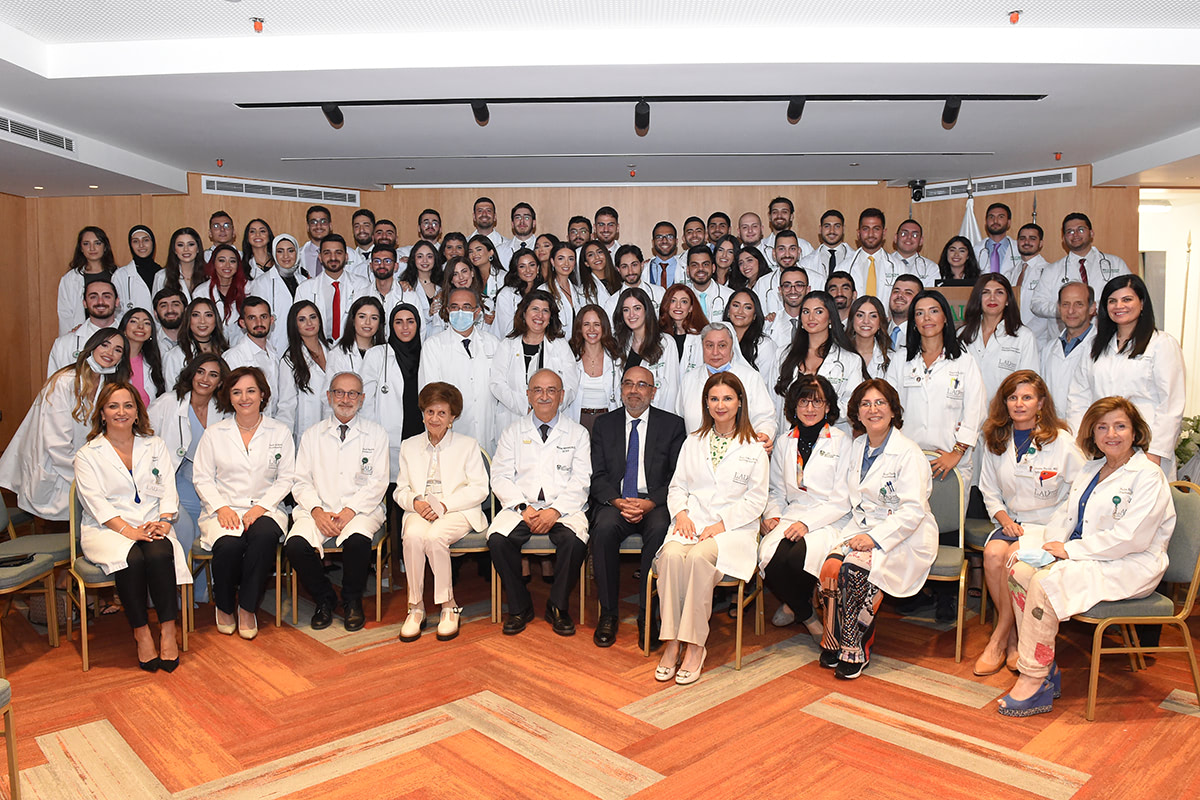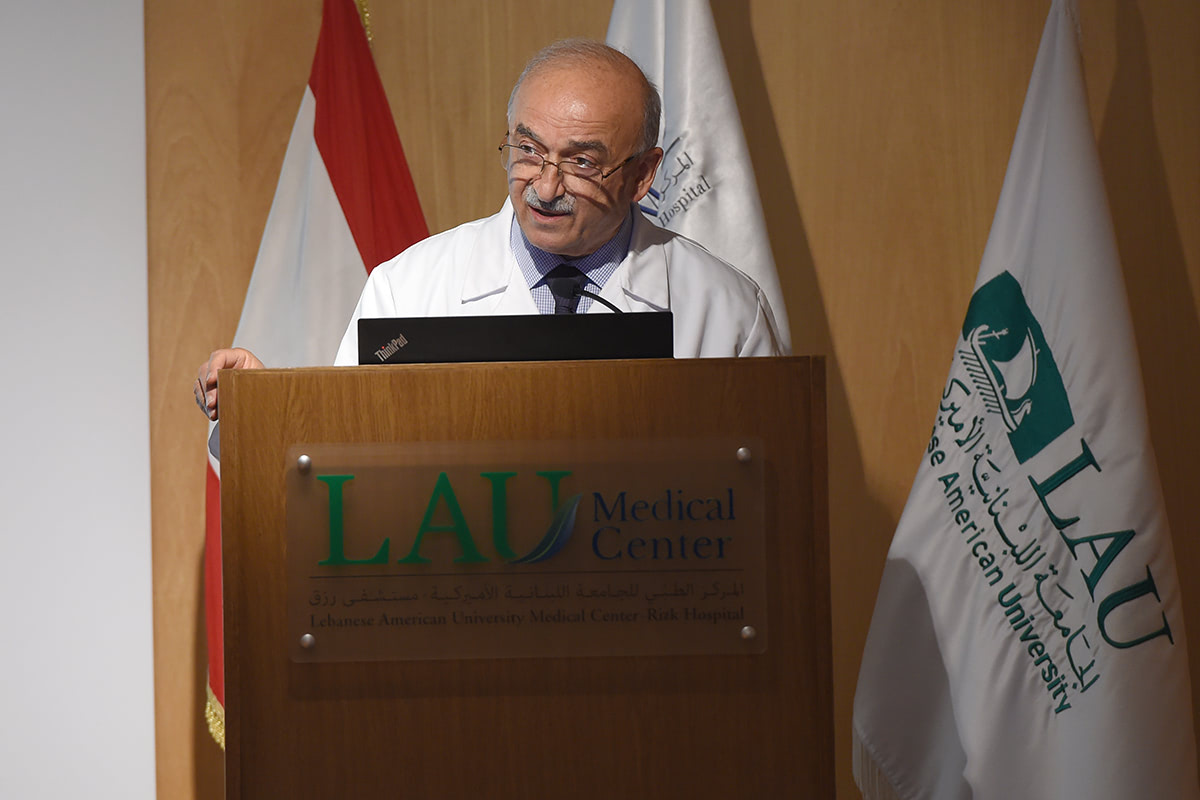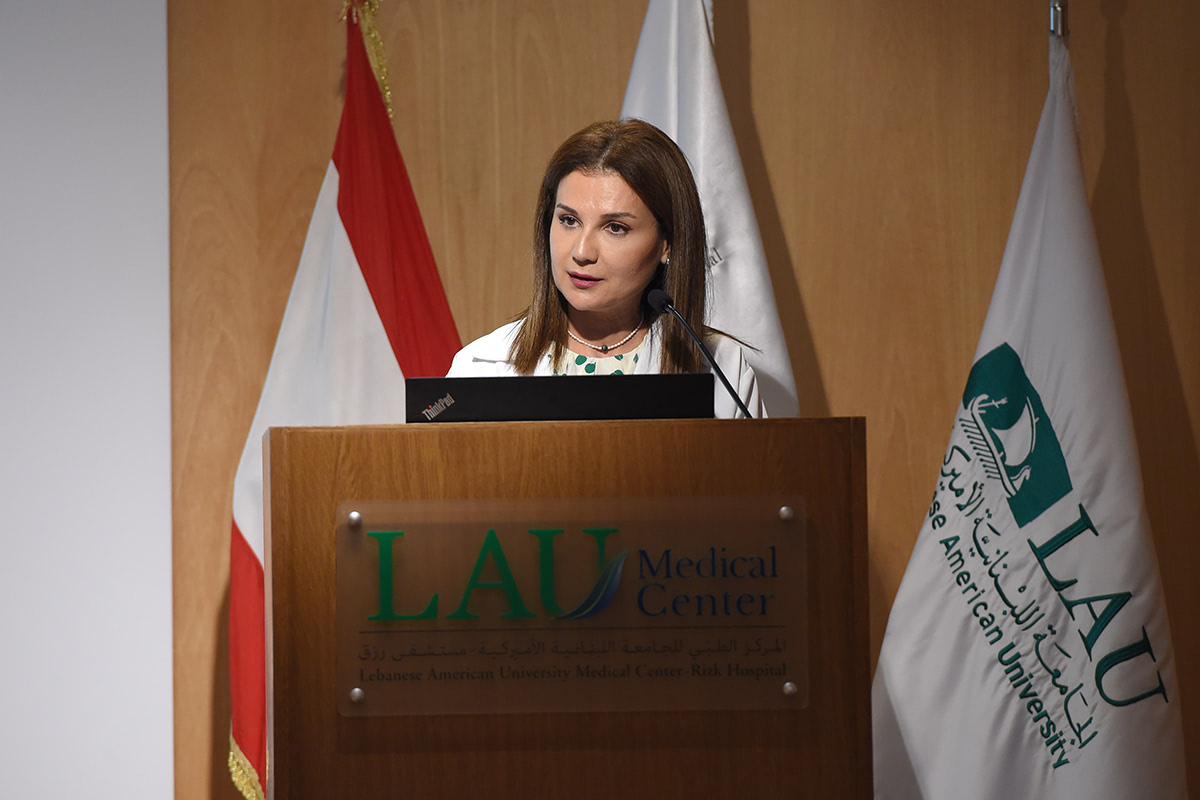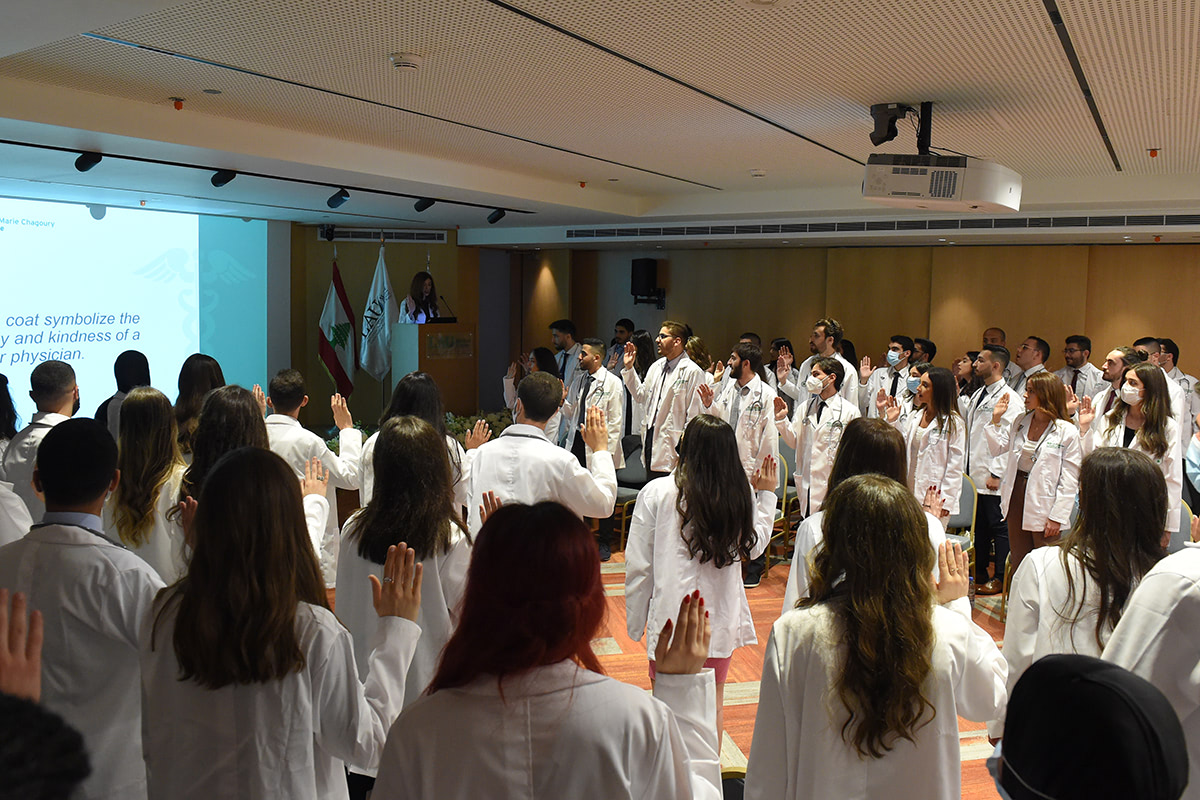What Lies Beneath the White Coat
Well-aware of the greater responsibility they will assume in the clinical wards, medical students are confident they are up to the task.
As the 65 students of the Gilbert and Rose-Marie Chagoury School of Medicine filed in the auditorium at the LAU Medical Center-Rizk Hospital on Thursday June 9 to don their white coats, they felt well-prepared for the transition from pre-clinical learning to the clinical wards.
Though they will now be interacting with patients in the hospital setting of LAU’s medical centers, the comprehensive curriculum and facilities at the school have afforded them a solid foundation in clinical and soft skills, research, teamwork and above all, values such as empathy and compassion that distinguish good physicians.
As early as Med I, students at LAU’s school of medicine have the advantage of applying their knowledge and skills in the safe environment of the Clinical Simulation Center (CSC) and working in a multidisciplinary team through interprofessional education (IPE). Objective Structured Clinical Examinations (OSCEs) assess their clinical skills – such as taking a patient’s history, conducting a proper physical exam, communications skills, professionalism, and clinical reasoning – during live mock patient appointments.
“LAU has prepared us well, within limits that we could handle as medical students,” said Wassim Khatoun. “In addition to the experience we have gained at the CSC, the research opportunities we have had within the school and with other stakeholders have been invaluable. We’ve always been welcome by faculty to do clinical research and write case reports, which also taught us to think clinically about situations we might come across at hospitals.”
Even though the transition from the undergraduate to medical years was somewhat difficult as it coincided with COVID-19 and the crises in the country, online classes and the support of faculty ensured that the students’ coursework was not disrupted by the closures.
“To meet the objectives of hospital visits during our clinical years, the doctors conducted virtual visits, which was actually a nice experience,” said Khatoun. “In the first year, we completed five modules online, and covered more material than what is required of students our age.”
The Med I and Med II modules all incorporate clinical sessions, whereby students practice procedures and specific physical exams on simulators, and learn to diagnose medical conditions, said Leah Nasr.
“During our pre-clinical years, we were not only introduced to the clinical years but also to residency and all the options available if we wished to study abroad,” Nasr said. “We received great guidance both from physicians as well as older medical students and residents who had gone through what we were about to go through,” she added.
Just as important as clinical skills are patient safety, lifelong learning, professionalism and empathy. Right from the pre-clinical years, students are trained to become knowledgeable, compassionate, and ethical healthcare professionals.
“During our pre-clinical years, the stress has been on the humanitarian aspect of being a doctor, what is expected of us and how we should interact with patients, such as delivering bad news, taking history and maintaining confidentiality,” said community-oriented student Maryline Alhajj, who hopes to specialize in family medicine. “Medicine is not only about treating a patient. We have to practice with humanity and responsibility.”
“Healthcare is like a team sport,” she went on to say, “it is important not to assign blame, and to know our duties,” something she learned working alongside her peers from LAU’s health and social care programs in the IPE program.
The interprofessional collaboration also helped them “define the role of each of the healthcare team in practicing patient safety,” says Kassem Sbeity. “The IPE places a great deal of emphasis on communication, because a lot of errors occur from lack of communication, especially between doctors, nurses and pharmacists.”
Although they have been equipped with the best knowledge and skills, Dean Sola Aoun Bahous told the students at the ceremony, their encounters with patients “will pose a new challenge for you every time … It is in situations like these where your character, reactions, patience and understanding come into play.”
“Your patient will be your best teacher,” she added. “Listen to him, to her; you will learn to be confident enough to bring comfort and safety, critical enough to impart improvement and creativity, and humble enough to earn trust.”
No matter how vast their medical know-how and how much renown they may gain, “humility, humanity and self-exertion are three qualities you should never part company with,” said LAU President Michel E. Mawad.
Imparting advice from personal experience, keynote speaker and resident at Duke Medical School Theresa Rizk urged the students to “be comfortable not knowing” all the answers on their hospital rounds – an important lesson she had learned from her clinical training.
“You’re med students … You’re supposed to not know, and you’re supposed to learn. So don’t let not-knowing discourage you. Be comfortable with it, and let it drive your learning,” she said.



